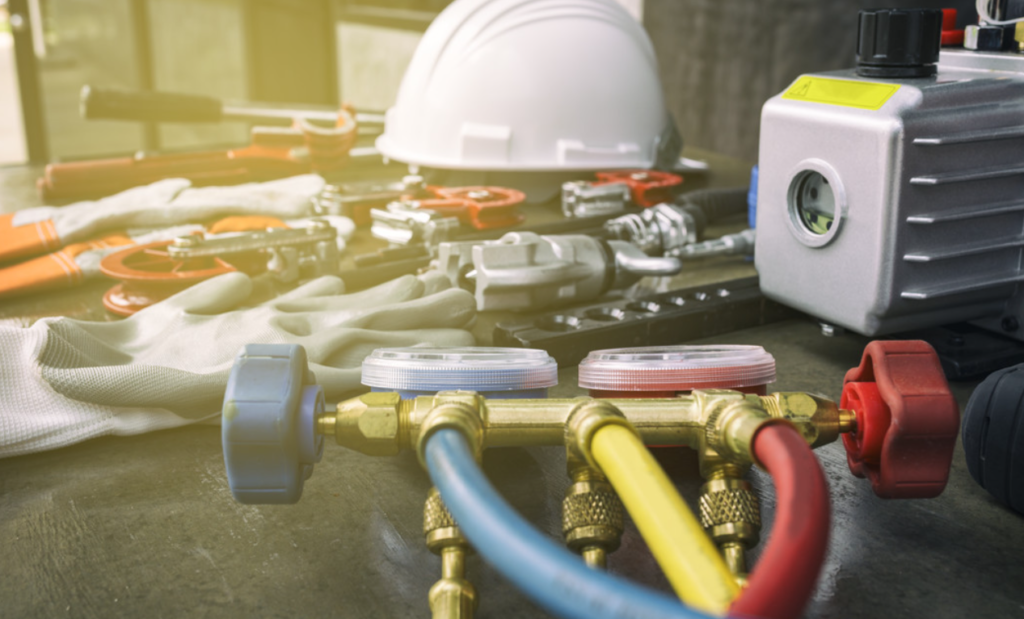As temperatures climb, the last thing you want is for your air conditioning to fail. Yet, like any complex machinery, air conditioners are not immune to issues. Whether you’re a DIY enthusiast or a seasoned professional, understanding these common complications can save you time, money, and discomfort.
Buckle up as we dive into the five most common air conditioner problems and solutions to keep cool during those hot summer days, especially if you’re tackling AC repair in Erie.
Table of Contents
1. Dirty filters
A dirty or clogged filter is a frequent culprit that hampers your AC’s efficiency. Filters that collect dirt and debris reduce airflow, so as a result, the air conditioner works harder than needed.
This can lead to many problems, including reduced cooling power and increased energy consumption. Moreover, it can put undue strain on other components, potentially leading to system malfunctions or a shortened lifespan for your unit.
To address this, inspect filters monthly and clean or replace them as the manufacturer recommends. For most systems, simply sliding out the filter and using a combination of vacuuming and water rinsing will suffice, or you can install a replacement for a fresh start.
This simple maintenance task can significantly enhance your air conditioner’s performance and reliability.
2. Refrigerant leaks
Refrigerant leaks are serious problems that can affect the performance and effectiveness of your air conditioning system. Identifiable by a hissing sound, ice formation on the AC coils, or a noticeable decrease in cooling capacity, leaks stem from various causes, including corrosion, physical damage, or improper installation.
Additionally, not only do they impair your AC’s ability to cool, but they also pose environmental risks due to the harmful nature of the refrigerant.
Enlisting professional assistance is crucial for safely and effectively dealing with refrigerant leaks. Certified technicians possess the tools and expertise to identify, repair, and recharge the system, ensuring that it operates at its intended efficiency while adhering to environmental regulations governing the handling of refrigerants.
Regular maintenance is essential to curb the issue of refrigerant leaks preemptively. Professional routine check-ups can detect early signs of wear and potential problems, allowing for timely intervention. Moreover, ensuring a proper installation by qualified personnel helps avoid such complications from the outset, safeguarding your air conditioner’s longevity and the environment.
3. Thermostat issues
Thermostat malfunctions can be misleading and may cause the air conditioner to run inconsistently or not at all. To diagnose a thermostat problem, ensure it’s level and clean inside, as dirt can affect its performance.
If you have a digital thermostat, check and replace the batteries if necessary. Next, verify that the settings are correct and attempt to recalibrate the thermostat according to the manufacturer’s instructions. If the problem persists, it might be due to wiring issues, or it may require a replacement.
Preventative measures include regular cleaning and recalibration, and, for smart thermostats, ensuring the firmware is up to date to avoid glitches. Scheduling an annual inspection with a professional can also keep thermostat-related issues at bay.
4. Unusual noises
Sudden or strange noises from your air conditioning unit are more than just trouble; they can be indicative of underlying issues needing attention. Rattling or buzzing sounds might suggest loose parts, whereas whistling or screaming noises could signal a more serious problem, like a refrigerant leak or high internal pressure.
Tightening any loose components or insulating ductwork may alleviate rattling and buzzing concerns. For best results, inspect the unit while it’s off, check screws and panels, and use sound-dampening materials if necessary. Always remember to cut off the power before attempting any fixes.
If the unit emits whirring, whistling, or screaming sounds, it’s critical to turn off the system and contact a professional immediately. Such sounds indicate potentially dangerous issues that require specialized knowledge and equipment to resolve safely and effectively.
Regular maintenance by certified technicians is also a wise preventative measure to catch and address any possible issues before they escalate into costly repairs.
5. Electrical control failure
The electrical components in your air conditioner – like the compressor, fans, and capacitors – are crucial for its operation. Over time, wires can corrode, connections may loosen, and components wear out, causing electrical control failure. This could result in the AC not turning on, shutting off unexpectedly, or not responding to thermostat changes.
Prevention involves regular inspections and maintenance. Have a licensed technician check connections and components during service visits to catch and address any signs of wear. Replace burnt contacts and wiring promptly.
Moreover, resetting AC circuit breakers might offer a temporary fix for electrical control failure, but calling a professional for a thorough solution is recommended.

